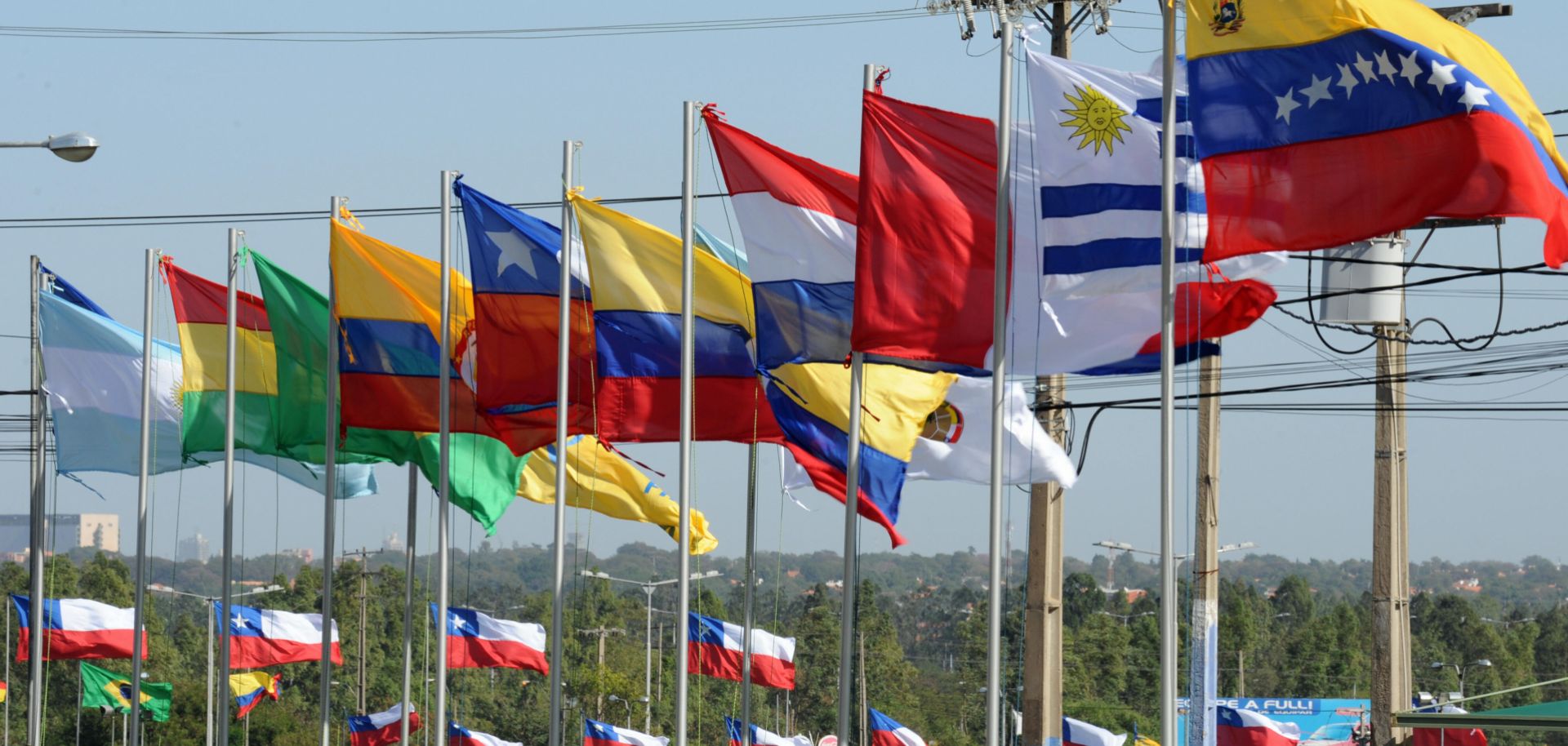ASSESSMENTS
Mercosur Looks Beyond Itself
Jul 21, 2017 | 09:00 GMT

(NORBERTO DUARTE/AFP/Getty Images)
Forecast Highlights
- Mercosur will move toward gradual trade liberalization with other economic blocs and individual countries.
- Political changes in Argentina and Brazil as well as reduced trade within Mercosur forced the bloc to seek other markets outside South America.
- Among Mercosur's major trade negotiations, a deal with the European Union is the one most likely to be concluded this year.
Subscribe Now
SubscribeAlready have an account?
